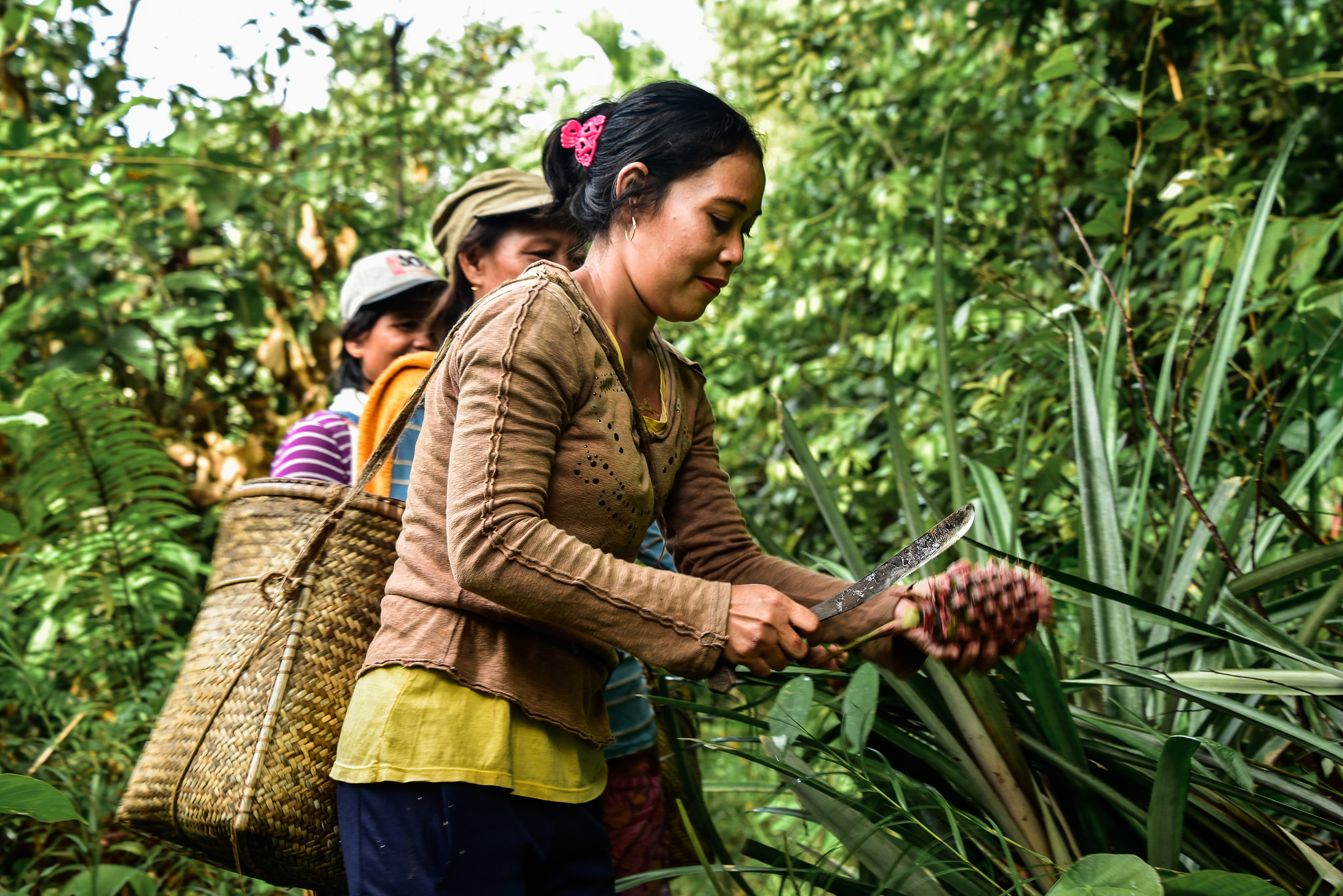Talking about local resource management in the context of rural African communities means talking about the specific role of women and gender differentiation in resource rights and responsibilities. This affects aspects of control over and access to resources, different types of resource use, divisions of responsibilities, local leadership participation and environmental knowledge.
In order to challenge potential social imbalances, which often disadvantage women, Kenya introduced a new gender quota in its constitution in 2010, mandating that “not more than two-thirds of the members of the elective or appointive bodies shall be the same gender” (GOK 2010, p. 25). As part of the current Center for International Forestry Research (CIFOR) research project on the ‘water towers’ of East Africa funded by the German Federal Ministry of Economic Cooperation and Development (BMZ), I took part in examining the effects of this gender quota as well as broader gender differentiation on the performance of community forest associations (CFAs), water resource users’ associations (WRUAs) and local resource use.
We found that, due to cultural norms and traditional value systems, the quota has yet to be implemented, and gender inequality in leadership, access to financial benefits and profit sharing persists – and, most women are fine with this.
For the focus of our case study, we selected the two communities of Londiani and Kipkelion adjacent to the Mau Forest Complex – East Africa’s largest montane forest – home to the Londiani CFA as well as the Kipchorian WRUA. Women and men in each were asked separately in focus group interviews about the aforementioned aspects of gender differentiation. Digging deeper into the various origins and reasons for the current status quo, further interviews were conducted with select stakeholders of power in forest and water management within the research area. These together revealed current gender myths and theories, expounded below.
EQUITY PROGRESS VS. STAGNANT SOCIAL NORMS
Being the bread winners of the household, women are responsible for water, firewood, food and conservation on a daily basis, while men usually use natural resources for commercial purposes only (selling forest products). This is rooted in a longstanding tradition of labor division, which remains unchanged to the present date.
Moreover, there seems to be no gender balance in leadership in either of the two community associations. Women’s responsibilities often prevent them from having the time to perform their duties as potential leaders. Some of the interviewed women also emphasized their lack of education as compared to men’s, and thus do not picture themselves in leadership positions. Other women do not want to lead, because of their view that a leader has to be physically strong and energetic to protect the resources from potential threats. Furthermore, the community members revealed that many women need their husband’s permission to assume leadership.
Similar social imbalances could be found within gendered land tenure. Despite gender equality and access to resources now enshrined in the new Kenyan constitution (i.e. elimination of gender discrimination in law), the expert interviews reveal that, due to cultural aspects, land tenure in Kenya still belongs to men.
This gendered land tenure makes it challenging for women to be properly involved in income-generating activities, since men must provide them with land. Moreover, the interviewed women revealed that profits from harvesting and selling agricultural products – such as with bee-keeping or tree nurseries – belong to the head of households, which is usually a man.
Yet, interviewed women stated they are happy with their chances to participate. They feel included in decision-making processes and that they have solid opportunity to elect their leaders in a fair and democratic procedure. Even if they might disagree with their leaders or face problems within resource management, they can call a meeting and raise their concerns.
“We tried to include women. But these women are happy to let it be that way, because of their level of education and also cultural aspects that play a part,” said Boniface Mulwu of Kenya Forest Service (KFS).
Concerning gender differentiation in leadership, responsibilities and land tenure, the interviewed representatives of the regional offices of KFS and the Water Resources Authority (WRA) argue in favor of more equality between women and men. But neither KFS nor WRA have provided any programs for women’s empowerment, yet.
BOTTOM-UP CONCEPTS VS. TOP-DOWN INSTRUCTIONS
The status of gender differentiation within resource management in the Londiani forest is traceable to a few different causes.
First, cultural background and customary law play huge roles in the daily lives of rural Kenyans, which results in the perpetuity of traditions that prevent locals from adapting to more modern Kenyan value systems. Living in lines with traditional values, none of the interviewed women expressed unhappiness with their comparatively lower status to men.
Second, a lack of education hinders a lot of women from obtaining a job other than the one passed down to them by their families and communities. They also appear unaware about their rights in the Kenyan constitution.
Third, there is an urgent need for men to be more sensitive to gender equality. Men still have a lot of power over women, especially their wives. Prior research shows that many women’s empowerment programs exacerbated existing household tensions between men and women, such as land tenure, the allocation of earnings, or that women require their husband’s permission to participate in certain activities (such as leadership).
In addition, there is an unequivocal lack in programs supporting women’s empowerment. All interviewed experts are aware of gender imbalances and argue in favor of women’s empowerment. Moreover, they all stated that they have tried to apply the constitution’s 30% gender quota, but remaining imbalances show that this quota cannot be the sole solution, proving that legislative reforms are not matched by changes in social and economic realities enabling women to benefit from new laws. An enactment of national law such as the quota does not change the formal structure of social arrangements on the local level.
A better alternative, perhaps, is to incrementally change the custom and value systems of a local population through efforts such as educational programs. Women in leadership could, without a doubt, assist this process, but the fulfilment of a gender quota does not necessarily remedy all inequalities that currently exist on the local level. Therefore, the focus should be less on a fixed quota and more on education around social imbalances. Instead of working with top-down instruction, one has to add a bottom-up process to see efforts successfully implemented.
For further research, household surveys should be considered to complement the focus group interviews in order to include the opinion of women who were not able to participate in the focus group discussions due to several reasons. Furthermore, to obtain a more representative reflection of gender differentiation at large as well as to achieve more efficient resource management, it is important to interview those abstaining from participating in user groups yet making use of local resources, too.
We want you to share Forests News content, which is licensed under Creative Commons Attribution-NonCommercial-ShareAlike 4.0 International (CC BY-NC-SA 4.0). This means you are free to redistribute our material for non-commercial purposes. All we ask is that you give Forests News appropriate credit and link to the original Forests News content, indicate if changes were made, and distribute your contributions under the same Creative Commons license. You must notify Forests News if you repost, reprint or reuse our materials by contacting forestsnews@cifor-icraf.org.


